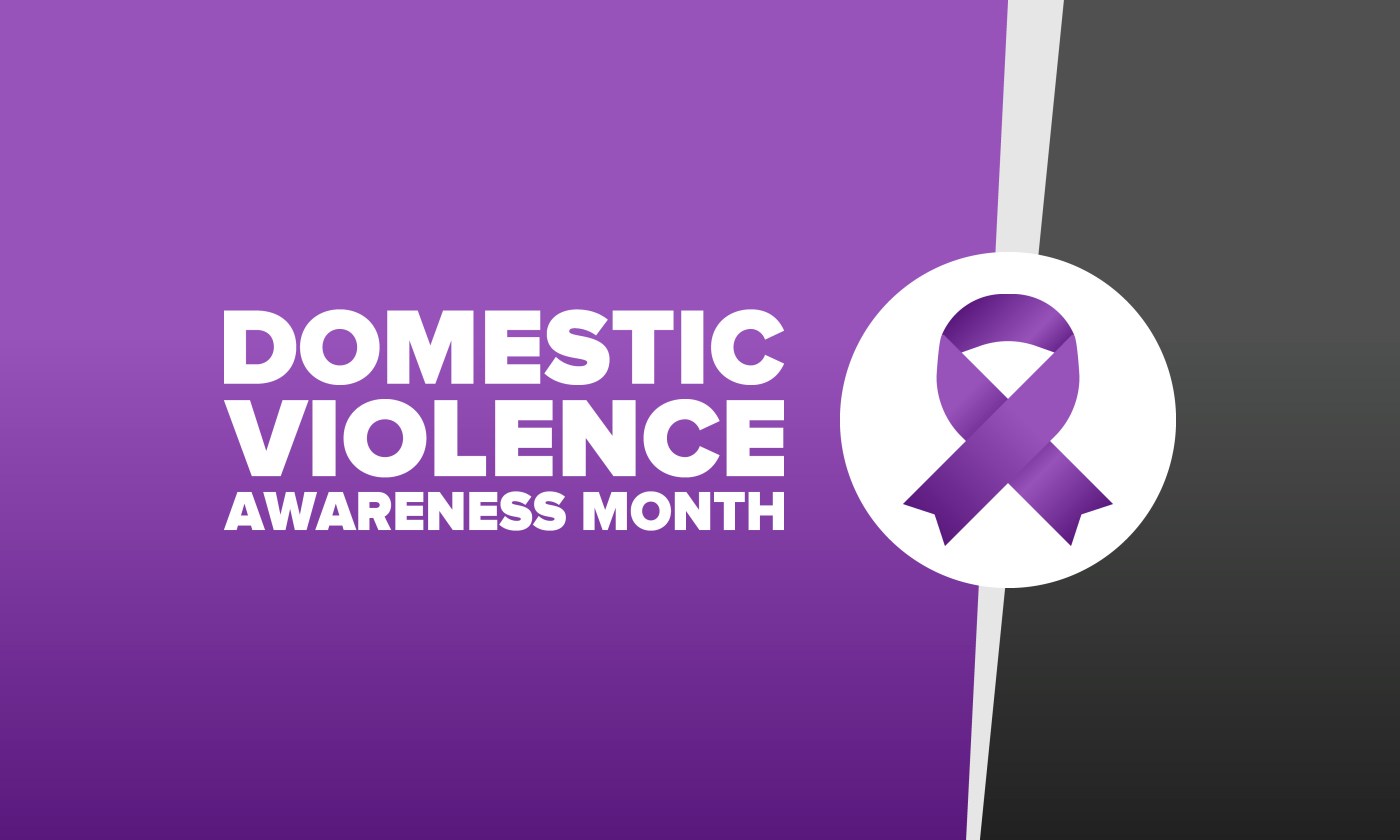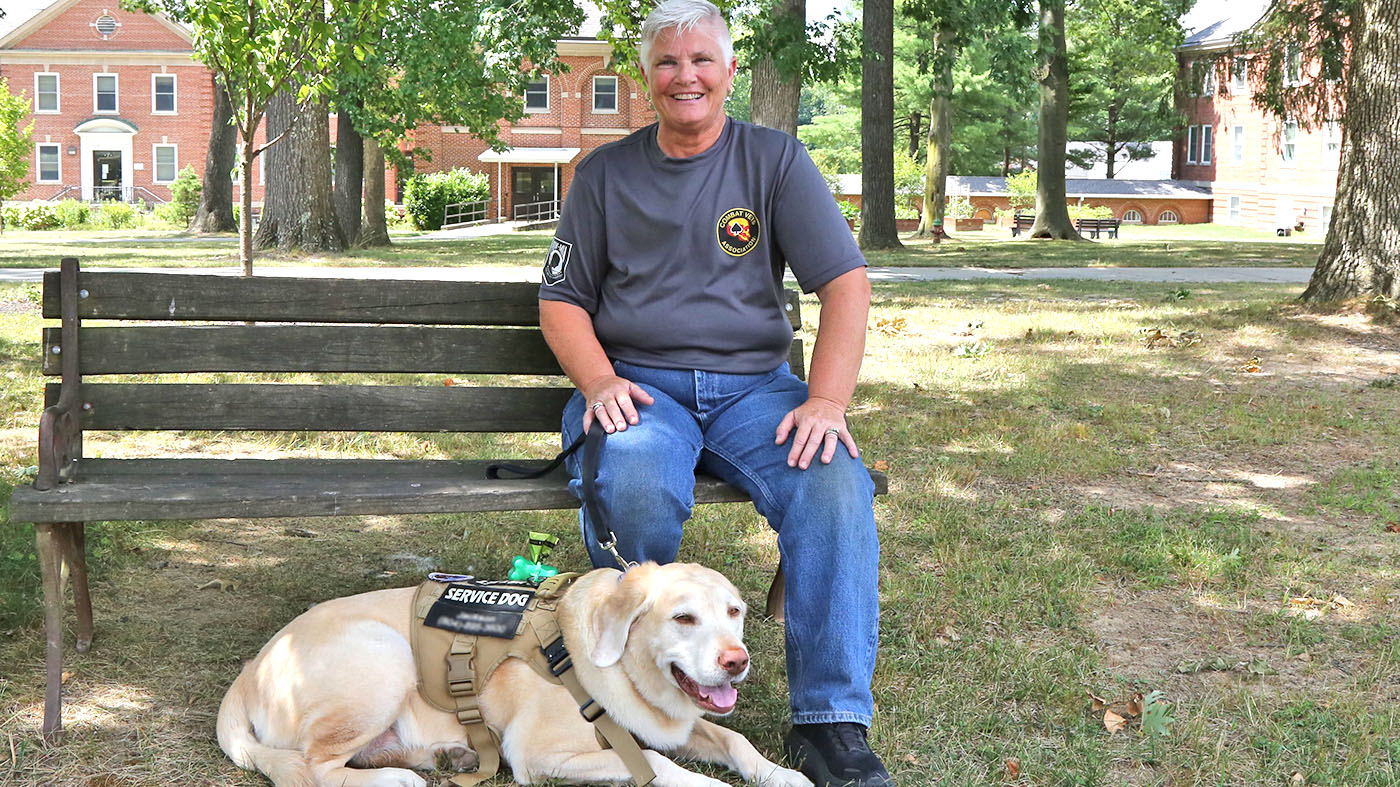During Domestic Violence Awareness Month, and beyond, VA encourages Veterans, their partners, and VA staff members to check out resources and services related to intimate partner violence (IPV).
IPV encompasses physical or sexual violence, stalking, and psychological aggression by a current or former intimate partner. These behaviors occur at various frequencies and levels of severity, ranging from one episode that may or may not have a lasting impact to chronic and severe episodes over a period of years. While all couples have disagreements, the use of name-calling, put-downs, physical aggression, threats, and controlling behaviors are not healthy.
Research shows that each minute of every day, 24 Americans experience IPV. The need for resources and support may be even more paramount among Veterans, as some studies show that up to 70% of women Veterans who receive care at VA have experienced IPV. If you or someone you know is impacted by IPV, there are steps you can take to enhance the safety, emotional and physical well-being of those affected.
Intimate Partner Violence Assistance Program
If you are affected by IPV, you are not alone – and help is available. VA’s Intimate Partner Violence Assistance Program (IPVAP) provides a comprehensive network of services to Veterans, their families and caregivers, and VA employees who experience or engage in IPV. The program offers counseling, toolkits, fact sheets and tools for assessing relationships and health safety.
We know that VA understands and recognizes the unique stressors and experiences that Veterans and their families may face, and the lasting negative impact that IPV can have on overall health and well-being. IPVAP values and promotes safe, healthy relationships while standing ready to assist with safety planning and intervention. It is easy to find a local coordinator to find out more about local programs and services.
Homelessness and Intimate Partner Violence
The Supportive Services for Veteran Families (SSVF), Housing and Urban Development-VA Supportive Housing (HUD-VASH), Grant and Per Diem (GPD), and Health Care for Homeless Veterans (HCHV) Contract Residential Services (CRS) programs offered through VA’s homeless programs can help those affected by IPV who are in need of housing and fleeing domestic violence.
Veterans who lose their housing when fleeing domestic violence are eligible for all four programs. SSVF rapid rehousing and HUD-VASH are both designed to help Veterans and their families who are experiencing or at risk of homelessness quickly access permanent housing. The GPD and HCHV CRS programs provide temporary housing and supportive services to help Veterans experiencing or at risk of homelessness achieve residential stability, increase their job skills and incomes, and achieve greater self-determination.
VA’s Homeless Programs Office is also promoting the development of pilots of innovative practices to implement universal screenings for IPV and relationship health with Veterans in VHA specialty homeless programs.
COVID-19 and Intimate Partner Violence
Relationship conflict and/or abuse may occur and escalate during times of crisis, such as the COVID-19 pandemic. While social distancing may prevent the spread of COVID-19, those who live with a partner who uses violence may feel less safe at home than they would outside of their home. Preventive measures to control COVID-19 may also limit their access to IPV resources and support, such as courthouses, health care facilities, childcare, and public transportation.
In response to COVID-19 and its potential impact on IPV, VA IPVAP launched a campaign to address the unique circumstances of those who are at heightened risk. Watch the COVID-19 and Intimate Partner Violence video for more information about the impact of COVID-19 on IPV and ways to maintain relationship safety.
More Information
- Check out VA IPVAP’s Domestic Violence Awareness Month video, which highlights the 2020 theme of checkup, check in, and check out relationship health and safety.
- If you are experiencing IPV, call the National Domestic Violence Hotline at 1-800-799-7233 or 1-800-787-3224.
- For more information or to receive assistance, contact your local Intimate Partner Violence Assistance Program. Women Veterans may ask for the Women Veterans Program Manager. If you are unable to reach a local IPVAP coordinator, please speak with your primary care social worker or other provider.
- Veterans who are homeless or at risk of homelessness should contact the National Call Center for Homeless Veterans at 877-4AID-VET (877-424-3838).
LeAnn E. Bruce, PhD, LCSW, is the national program manager for VA’s Intimate Partner Violence Assistance Program.
Topics in this story
More Stories
Combat Veteran faces the traumatic events of her PTSD during prolonged exposure therapy and looks forward to the days to come.
Bob Jesse Award celebrates the achievements of a VA employee and a team or department that exemplifies innovative practices within VA.
The Medical Foster Home program offers Veterans an alternative to nursing homes.






